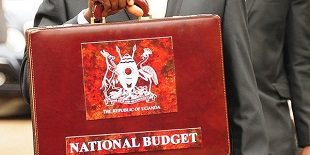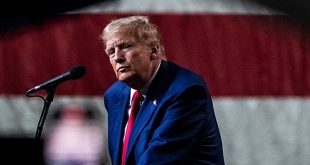The only benefit most Hutu masses received before 1994 was the emotional feeling that a fellow Hutu and a small cabal around him were the ones in charge of the country. They ruled and looted for themselves and their families, never for ordinary Hutu masses. Ordinary Hutu could not go to school, could not get medical care, etc. I do not underrate the power of such a feeling, but I do not agree that a government should sustain such emotional satisfaction at the price of keeping an entire people backward and un-served or under-served by the state.
Here is the real problem that the politics of identity throws into our faces and which makes Karegyeya’s argument (“can you name one Hutu who has influenced anything since 1994”) illuminating: it is NOT by making all citizens beneficiaries of state policy that makes a government in Africa to be seen as being inclusive. Rather it is co-optation of a few powerful elites from a given ethnic group and giving them positions of power and privilege that does the magic.
I am certain that if there were about five powerful Hutu politicians and army officers around Rwanda’s President Paul Kagame; and these five looted the country with impunity, dispossessed innocent people without fear, directed affairs of state at their whims and bullied and terrorised ordinary Hutu civilians to vote for Kagame, many would argue that the Hutu are not marginalised – well because these few have power and influence.
I admit that in the real murky world of politics in Africa, this trade among elites has been the most effective way to satisfy the masses in our ethnically diverse societies. For instance, even if public goods in Toro region like schools, roads and hospitals were rotting, and people there cannot send their children to school or find doctors and medicines in hospitals, but Noble Mayombo, Tom Butiime and Adolf Mwesige were seen as a powerful influence in government, people would argue that Batoro are not marginalised. Why? They would be in power. And true, Batoro would show up in large numbers to vote Museveni because he has given “their sons” power. While I know that this is how politics has worked in Uganda and Africa for long, I disagree with it as a way to organise society.
As Karegyeya’s SMS showed, the figures demonstrating benefits to the masses through public policy mean nothing in the Hutu-Tutsi equation in Rwanda. All that matters is to have a few but very powerful Hutu around Kagame. Then the Hutu would not to be seen as marginalised. Timothy Kalyegira in Uganda, for instance, has told me severally that the release of one person, Victoire Ingabire, would be the most satisfying thing the Hutu would like to see from Kagame – more than all the medical insurance, education scholarships, roads, well development resettlement villages, agricultural extensions services that have given every family an exotic cow, etc.
Kalyegira may not be right on the specific case of Ingabire (I think if his heroine went to Rwandan villages, ordinary Hutu peasants would shun her). But he is right on the general application of this theory to the crisis of the state in Africa. Most leaders build their power base by placating powerful ethnic-elite interests at the expense of services to the masses. The system has worked: in Uganda, Kenya, Zambia, Nigeria, Ghana, Senegal, Ivory Coast, Mali, DRC etc. It has sustained many leaders in power.
In fact many African, but most especially Ugandan elites, falsely think the failures manifest in service delivery are due to some deficit in democracy. Again, many studies show that at lower levels of per capita income, democracy in ethnically diverse societies tends to generate what economists call “the tragedy of the commons”. Every ethnic group looks at national wealth as a resource shared with other ethnic groups. If it has a chance at power, it seeks to cling onto power as long as possible in order to appropriate as much of that common wealth as fast as possible. Change in government is therefore not a change in governance: it is replacement of one looting coalition with another.
Thus, in Ghana, Nigeria, Senegal, Ivory Coast, Uganda and Zambia, presidents appoint powerful individuals from key ethnic communities into positions of power and influence. These individuals link the president or ruling party to their co-ethnics. They may loot public resources with reckless abandon. But whenever they are prosecuted, they mobilise their ethnic communities to defend them. “He is the only son we have at the eating trough, why are they persecuting him?” Even a well intentioned president feels the heat and retreats from prosecuting a thief. It is through ethnicity that corruption has been fed and fattened in Africa.
This is the real challenge Africa faces as we try to build states that can place the interests of ordinary people at the centre of public policy. The political process everywhere tends to be dominated by powerful elites. Yet this is much more pronounced in Africa largely because of the interaction between poverty, ethnic diversity and low levels of education. Elites use identity to obscure the real issues that concern the masses.
For instance, Uganda’s Prime Minister, Amama Mbabazi, is without doubt a very powerful man. He enjoys the confidence of President Yoweri Museveni. He exercises a lot of influence in government. And he comes from Kanungu district. So many people think the people of Kanungu are not marginalised because Mbabazi is in power.
When I visited Kanungu in February, I found the main referral hospital in the district, Kambuga Hospital, in a bad state. The gardens are overgrown, the beds are broken, the mattresses are rotten, the buildings are murky and have gone without repair for years, the patients are not attended to due to a high incidence of doctor and nurse absenteeism, the hospital has few relevant drugs, money for its renovation was stolen, instead of the recommended six doctors the hospital has three of whom two were on study leave etc. In short, Kambuga Hospital is sick itself and is required to attend to the sick.
Yet popular feeling in Uganda is that westerners are “eating” i.e. they are not marginalised. According to Uganda Demographic and Health Survey of 2006, fifty per cent of all children in western Uganda were stunted, second only to Karamoja. In Kanungu I saw kilometres upon kilometres of electricity lines crisscrossing banana plantations, running above peasants’ homes on their way to serve a few homes of the elite. It was clear that ordinary people in Kanungu have got a raw deal. The patients I visited in Lira Hospital were getting better services than those in Kanungu. Yet we think the Langi are marginalised.
This form of politics where the power and privileges of a few elites is what it means by being marginalised or included is a politics that is both profitable in keeping leaders in power and winning them votes and also promoting corruption, patronage and systemic state dysfunction. It alienates the state from the citizen, makes it a prey to a few influential elites and leaves the ordinary masses without much access to desperately needed public goods and services.
For the last 60 years, Africa has fought many wars, gone through many military coups, generated increasing electoral violence on the issue of identity. Yet most ordinary Africans have less attachment to identity. All Afrobarometer surveys have found ethnicity most pronounced in cities than in villages; among elites than among ordinary peasants. This goes to show that it is largely elites who rely on identity to build a political base. They sell fear of “the other” to their constituents in order to win them over on emotional rather than principled grounds.
Africa needs individual leaders, public institutions, political parties, mass media, social movements and civil society organisations that can lead the struggle to liberate the state from this capture by a few elites using ethnic sentiments to build a political base. We need statesmen not politicians.
 The Independent Uganda: You get the Truth we Pay the Price
The Independent Uganda: You get the Truth we Pay the Price


